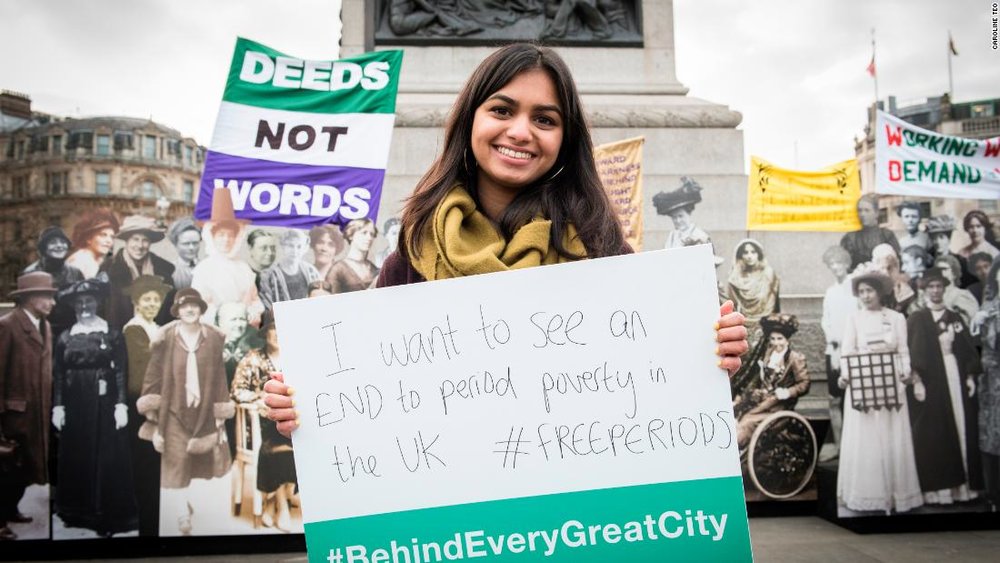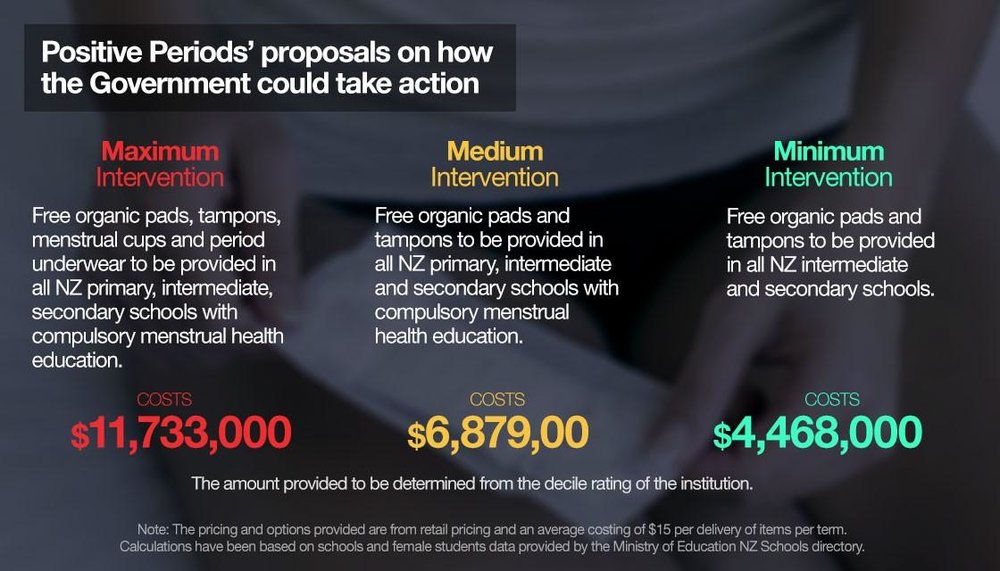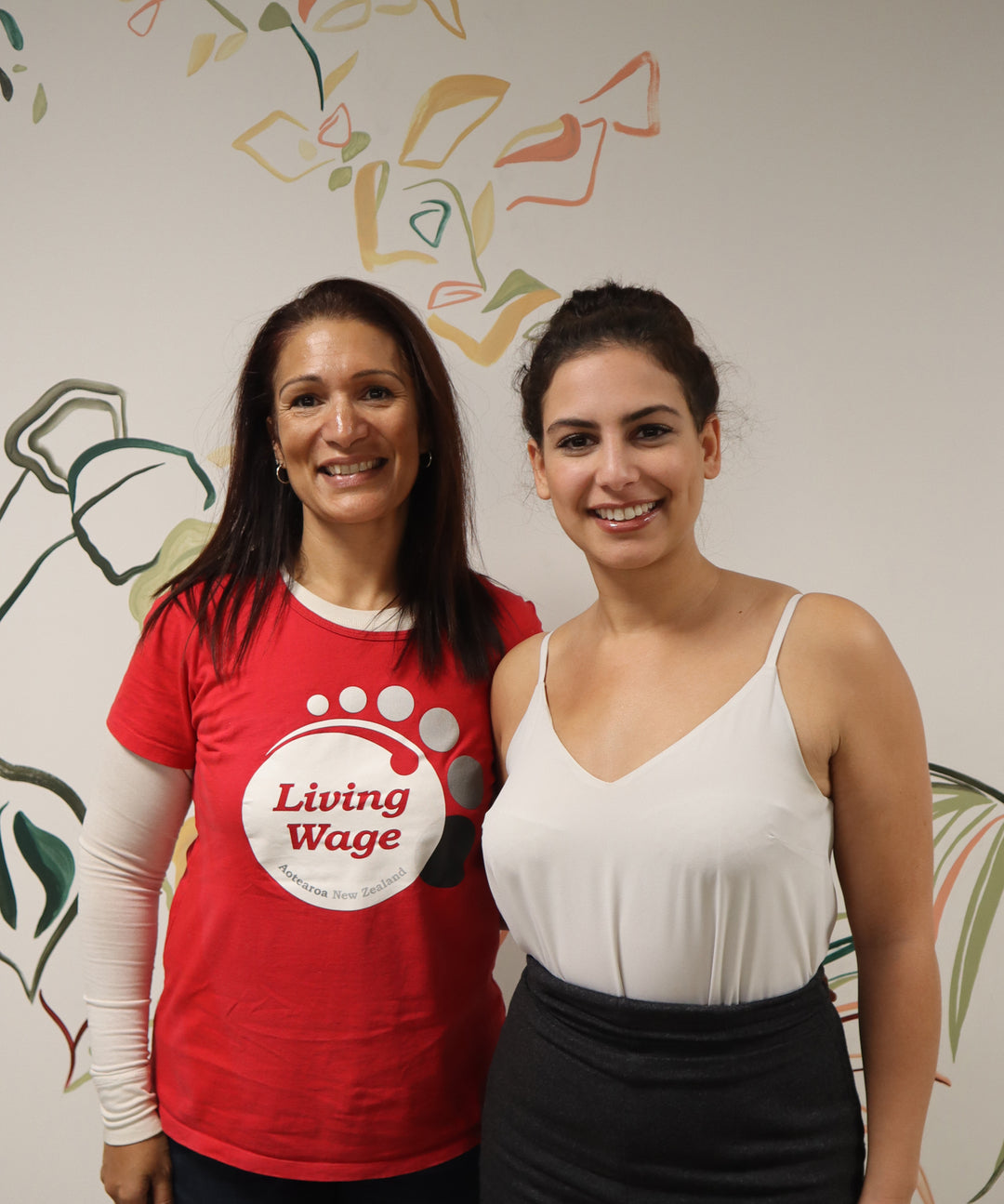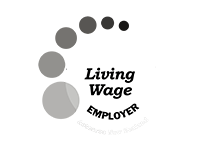
Periods are expensive. Period products cost on average $15,000 over a woman's lifetime.
This cost has been the cause of period poverty found in schools across the world. These include not just third world countries, but those that are developed like New Zealand.
Scotland last year, UK and Wales this year have agreed to publicly fund period products in schools in their countries. How did they get there? Why is this so important? More importantly, how might we in New Zealand get there?
Scotland: The first mover
25th August 2018 (5.4 million population)
Following the successful rollout of a scheme offering free sanitary products in educational buildings in August 2018, Monica Lennon MSP introduced the Sanitary Products (Free Provision) (Scotland) Bill.
This Bill was officially lodged in April 2019 and ensures that free access to
sanitary products in schools, colleges and universities is a legal requirement.
The Scottish government has pledged £4m to boost provision in public buildings, with the aim to achieve the following outcomes:
· Reduce and remove the stigma attached to periods
· Ensure gender equality with women no longer having to pay for sanitary products on a monthly basis
· Increase income equality for those on lower incomes and disability benefits, who may not have the same means to afford sanitary products
· Address age inequality by enabling younger girls to access free sanitary products which would allow them to continue with their education;

The #FreePeriod campaign in the UK
You can’t mention the crusade to get free sanitary items throughout the UK without mentioning an incredible women called Amika George. She started the #freeperiod movement which brought together many people to call on the government to make these items free.
Read more about her work here.

March 13th 2019 (66 million population)
The UK government has announced a pledge to provide period products in all compulsory education, including primary schools, secondary schools and colleges.
Children and Families Minister, Nadhim Zahawi, confirmed that the full scheme will be rolled out nationally from early 2020 and that period products in all schools will be fully funded by the Department of Education.
This scheme would work to address the following statistics from Plan International UK, which are a quantitative estimate of the current extent of period poverty in the UK:
● One in ten girls (10%) have been unable to afford sanitary wear
● One in seven girls (15%) have struggled to afford sanitary wear
● One in seven girls (14%) have had to ask to borrow sanitary wear from a friend due to affordability issues
● More than one in ten girls (12%) have had to improvise sanitary wear due to affordability issues
●One in five (19%) of girls have changed to a less suitable sanitary product due to cost
Wales: Third Place
23rd March 2019 (3.1 million population)
As part of the Welsh Government’s £1m funding to address period poverty in communities across Wales, Cardiff Council announced the roll out of a period dignity scheme. This would see local authorities across Wales will receive £440,000 over the next two years to use in schools, community groups or foodbanks, all with the aim of tackling period poverty.
This scheme would involve the following measures:
· Cardiff Council are going to supply primary and secondary schools with the products and equipment to implement the scheme which will see dispensers installed in cubicles – as privacy was a key issue highlighted by pupils who were consulted in a period dignity survey last year.
· Schools will be provided with a period dignity sticker which will be used to identify cubicles in school toilets where pupils can access the free products.
· Free sanitary products will be distributed via community groups, schools and food banks across Wales.
New Zealand’s turn next?
In New Zealand a similar movement is bubbling. Dignity’s mission has always been to make period products accessible to all women in New Zealand. The vehicle for this is a women’s wellbeing initiative for sanitary items in the workplace with a buy one give one model giving items to high schools around New Zealand. Currently they have 10 corporate partners helping to support over 100 schools from Invercargill to Northland have free, sustainable access to sanitary items each term - a total of 25,000 girls have access. Dignity are now looking to increase their beneficiary base to provide impact to the Red Cross, Family Planning clinics and the Pacific Islands.
Other initiatives fighting against period poverty include KidsCan and Salvation Army, who use a traditional charity grant and donation based model. There are alternative products on the market such as period underwear from I am Eva who have a buy one give one initiative. Several menstrual cup companies such as MyCup, Wā Collective and Hello Cup have impact initiatives with each purchase. Other groups such as Nope Sisters and The Period Place support and promote these initiatives through feminist clothing and period marketplaces.
What all of these groups have in common is a collective goal to eradicate period poverty from New Zealand. Work has begun to bring these groups together, alongside the government to create an equivalent movement in New Zealand for free period products.
New Zealand may not be able to be first or second in this movement, but being next is better than not at all.
What can I do to make period products accessible to all young people in New Zealand?
Join the Positive Periods campaign!

Ultimately what we want is for no student to ever be caught short, feel embarrassed or not have the financial means of access to period products, period.
There are currently 20+ initiatives across New Zealand fighting period poverty and as a country of 4.5 million people we can get this right.
We want is for every young person to have a positive and dignified experience with their period, regardless of the decile of the school that you attend. If you agree with this join the campaign at positiveperiods.co.nz.
Graphic supplied and more on the launch from Newshub here.

Further readings on Global Case Studies
More reading on case studies on this document here.








Leave a comment
This site is protected by reCAPTCHA and the Google Privacy Policy and Terms of Service apply.